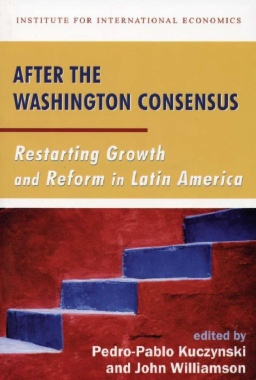This volume is a successor of sorts to the Institute's 1986 volume Toward Renewed Economic Growth in Latin America, which blazed the trail for the market-oriented economic reforms that were adopted in Latin America in the subsequent years. It again presents the work of a group of leading Latin American economists who were asked to think about the nature of the economic policy agenda that the region should be pursuing after a decade that was punctuated by crises, achieved disappointingly slow growth, and saw no improvement in the region's highly skewed income distribution. The study diagnoses the first-generation (liberalizing and stabilizing) reforms that are still lacking, the complementary second-generation (institutional) reforms that are necessary to provide the institutional infrastructure of a market economy with an egalitarian bias, and the new initiatives that are needed to crisis-proof the economies of the region to end its perpetual series of crises.
Contributors: Daniel Artana, Nancy Birdsall, Roberto Bouzas, Saúl Keifman, Pedro-Pablo Kuczynski, Ricardo López Murphy, Claudio de Moura Castro, Fernando Navajas, Patricio Navia, Liliana Rojas-Suarez, Jaime Saavedra, Miguel Székely, Andrés Velasco, John Williamson, and Laurence Wolff.
- Cover
- Contents
- Preface
- Acknowledgments
- Overview: An Agenda for Restarting Growth and Reform
- Ch 1 Setting the Stage
- Ch 2 Reforming the State
- Ch 3 Bootstraps, not Band-Aids: Poverty, Equity, and Social Policy
- Ch 4 A Fiscal Policy Agenda
- Ch 5 The Financial System
- Ch 6 Monetary Policy and Exchange Rates: Guiding Principles for a Sustainable Regime
- Ch 7
Making Trade Liberalization Work
- Ch 8 Education and Training: The Task Ahead
- Ch 9 Labor Markets during the 1990s
- Ch 10 The Politics of Second-GenerationReforms
- Ch 11 Summing Up
- Appendix: Our Agenda and the Washington Consensus
- References
- About the Contributors
- Index

